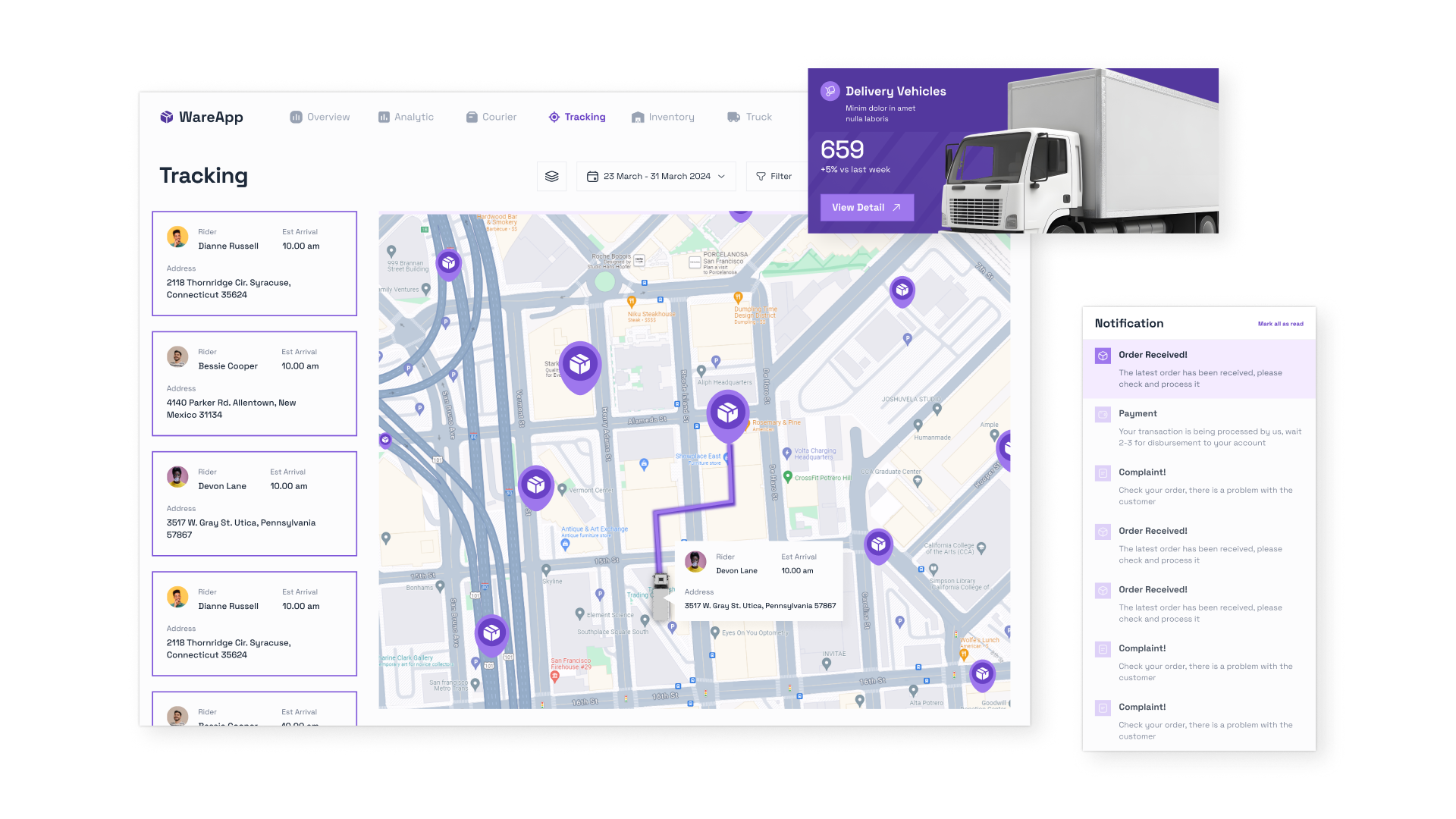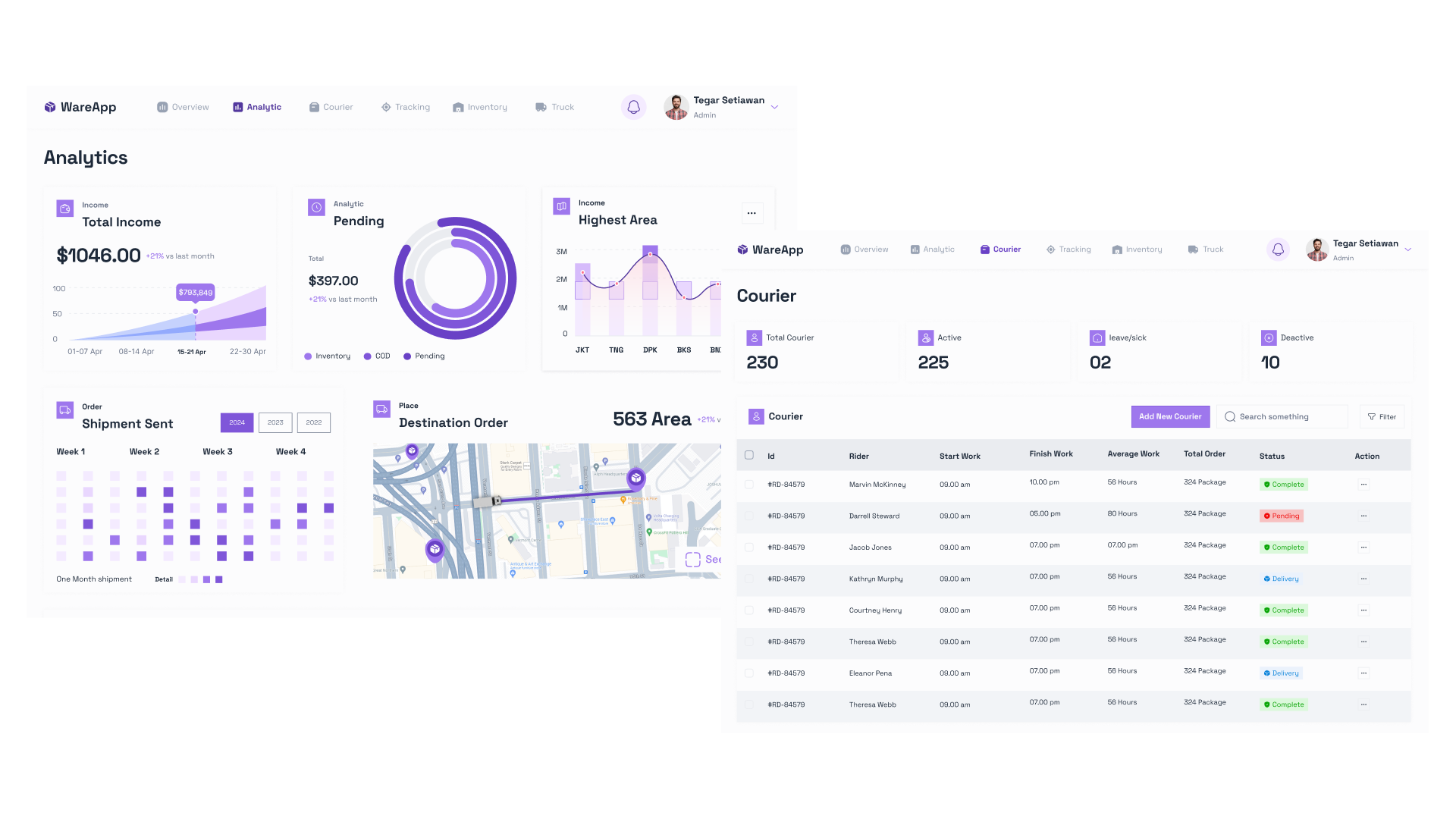The growth of the online trading market has contributed to an increase in the requirements for express carriers – today the user wants not only to receive his package as quickly as possible, but also to be able to track its location at any time.
To meet customer needs and increase their competitiveness, many merchants and shipping companies are launching their own tracking services. However, in practice, this is not always convenient, since the buyer can place orders on different sites and use the delivery of several courier services, and monitoring each package in a separate application becomes inconvenient and time-consuming.
This situation has led to the emergence of more global tools on the market that provide the user with information about all his deliveries in a single interface.
For example, one of the most sought-after solutions in this industry is the AfterShip project, which monitors the movement of goods in more than 300 postal services around the world and provides effective tools for analysis and control.

Applications for cargo tracking can be developed to work on different platforms – in a browser, on a smartphone or on a personal computer. Accordingly, a different technological stack will be used to implement such solutions:
The choice of technology stack plays a fundamental role in the development of an application, because performance, development speed and scalability depend on it.

The process of creating an application can be compared to building a house: first, research is carried out, then the foundation is poured, load-bearing walls are erected, and so on – that is, all work is carried out in stages. If any step is missed, the final result will not be at all as planned. For example, it is difficult to imagine a house in which the roofing stage was missed, because it will simply be unsuitable for housing.
Let’s consider the main stages of creating a cargo tracking application, and what work is performed at each of them.
Stage 1. Information collection
First of all, developers need to define clear goals and objectives of the project. To do this, the Project Manager holds meetings or online meetings with the client, at which he records his requirements and wishes, and business analysts conduct a market analysis, which helps to determine the individual vector of development of the future application.
Stage 2. Design and preparation of technical documentation
After receiving all the necessary data, the developers begin to create a prototype – a schematic model of the future application, which will allow you to get a clear idea of the capabilities and functional features of the project even before the start of its technical development. Most often, the prototype includes:
The created prototype will be used as a “foundation” for all subsequent stages of program production.
Stage 3. UI Design Development
A cargo tracking application is a project aimed at a wide range of users, so it is very important that it is convenient, attractive and intuitive for consumers from the first contact. To achieve this goal, professional UI designers are involved in the project, who shape the visual environment and feel of the project.
Stage 4. Creating the software part
Programming the program is a fairly general concept. If you delve a little into the processes, this stage can be divided into two key parts:
Stage 5. Testing
Testing allows you to make sure that all the functions of the program work correctly and in accordance with the design. There are two main types of tests:
If errors are detected, the QA engineer writes a bug report and returns the project to the responsible specialist for revision, and after they are corrected, retests.
Stage 6. Technical support and development
Even with thorough testing, there are situations when, after starting to use the program in real conditions, users encounter problems that were not previously detected. In this case, developers study the error and quickly eliminate it within the framework of technical support.
In addition, during the first months after the release, it often becomes clear what functionality needs to be created or improved to increase the efficiency of the program. To solve such tasks, specialists draw up a new technical task, if necessary, refine design layouts, and then develop and implement the necessary changes. It is also worth adding that before installing an update to the original version of the program, it is pre-tested on a production server, which avoids unpredictable consequences.
The e-commerce market is constantly growing, and the number of local and international online orders is increasing accordingly. At the same time, users – including not only end consumers, but also retailers – need effective tools to track and manage shipments in real time. Thus, investments in the development of innovative solutions in this area will most likely become profitable and pay off.
AVADA MEDIA specializes in the development of software for the transport and logistics industry. To implement such products, we use modern technologies, thanks to which we can guarantee high performance and reliability of the software, as well as the ability to implement almost any functionality.
Our works
Contact the experts Have a question?
The user, filling out an application on the website https://avada-media.ua/ (hereinafter referred to as the Site), agrees to the terms of this Consent for the processing of personal data (hereinafter referred to as the Consent) in accordance with the Law of Ukraine “On the collection of personal data”. Acceptance of the offer of the Consent is the sending of an application from the Site or an order from the Operator by telephone of the Site.
The user gives his consent to the processing of his personal data with the following conditions:
1. This Consent is given to the processing of personal data both without and using automation tools.
2. Consent applies to the following information: name, phone, email.
3. Consent to the processing of personal data is given in order to provide the User with an answer to the application, further conclude and fulfill obligations under the contracts, provide customer support, inform about services that, in the opinion of the Operator, may be of interest to the User, conduct surveys and market research.
4. The User grants the Operator the right to carry out the following actions (operations) with personal data: collection, recording, systematization, accumulation, storage, clarification (updating, changing), use, depersonalization, blocking, deletion and destruction, transfer to third parties, with the consent of the subject of personal data and compliance with measures to protect personal data from unauthorized access.
5. Personal data is processed by the Operator until all necessary procedures are completed. Also, processing can be stopped at the request of the User by e-mail: info@avada-media.com.ua
6. The User confirms that by giving Consent, he acts freely, by his will and in his interest.
7. This Consent is valid indefinitely until the termination of the processing of personal data for the reasons specified in clause 5 of this document.
Send CV
Contact us in any convenient way for you:
+ 38 (097) 036 29 32